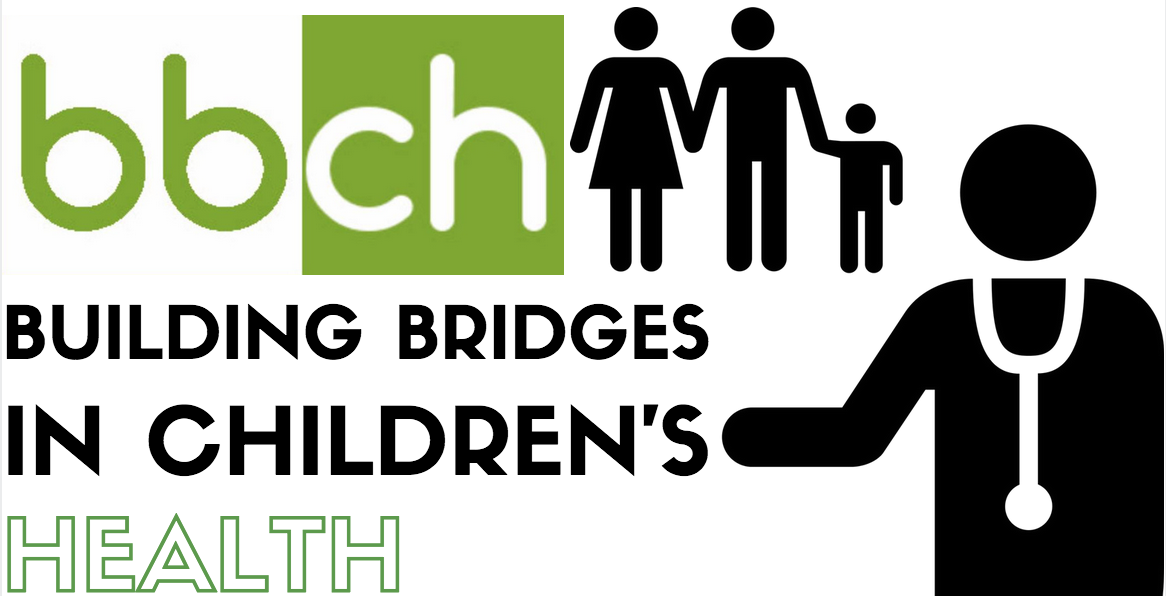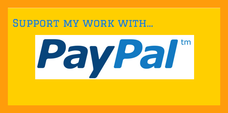For many parents and families, the concept and public workings of the medical system have changed over their lifetimes. So much so that the notion of a thoughtful and empathetic doctor many hold dear is becoming an outdated idea. All too often for parents, a simple trip to the local hospital can unexpectedly shift into a battle with medical staff over the treatment options for their child. Far from an occasional, isolated incident, the strategy to resort to medical bullying or threats in order to acquire parental consent to a one-size-fits-all standard of pediatric care has begun to root within parts of the medical system. Meanwhile throughout the world, the recognition of the sacrosanct parent-child bond and the tenets of free and informed consent continue to evaporate from mainstream medical thinking.
Presently, the stories of appalling medical mistreatment have poked through the surface of mainstream reporting. In the UK, the case of British baby Charlie Gard has put a global spotlight on parental rights within the country’s medical system. Gard’s doctors in Britain want to take him off life support, arguing that he has no hope of surviving without assistance due to a rare degenerative condition and that he should be allowed to die in dignity. But Charlie's parents want the hospital to release their baby into their custody so they can take him to the US for an experimental treatment that offers an estimated ten percent chance of success. Parental rights are not absolute under the United Nations Charter on the Rights of the Child, and in cases in which doctors and parents disagree, the courts decide what is in the child's best interest. But even after the couple raised £1.3million from public donations to pay for travel to the US and treatment of their son, the judge has ruled against parental wishes.
Unfortunately, Charlie Gard’s story isn’t an isolated case. An entire website called MedicalKidnap.com has long been dedicated to highlighting the cases of children being removed from their families for illegitimate reasons stemming from interactions with the mainstream medical system.
Institutional medical research is uncovering troubling trends in availability of pediatric care in the US. A new study on hospital care throughout Massachusetts, published in JAMA Pediatrics on July 10, 2017, found that hospital care for children has become increasingly concentrated in regional centers over the study period (2004-2014). The meaning of these findings has been highlighted by Reuters stating “a child who winds up in an emergency room - whether for a routine or a serious problem - is likely to be transferred to a second hospital for care, a “potentially concerning” trend that’s being reported by physicians throughout the United States.”
The apparent lack of experienced pediatric staff in some hospitals may increase the importance of considering parental input when delivering medical care to their child. Even Yahoo News once published a mother’s story of how hospital staff had negligently ignored her concerns over medical care delivered to her child at every turn. However, there now appears to be an unofficial moratorium on any corporate media reporting that could possibly cast the mainstream medical community in a bad light. It is the lack of such reporting that has partly created a collective naiveté among parents and diminished their desire to educate themselves about parent-doctor dialogue in mainstream medical settings, the meaning of informed consent and best health practices for their children. Laws, like California Senate Bill 277, have only further complicated the conversation between parents and the medical community, by removing informed consent in vaccination.
In the past, parents who wished to learn about the pitfalls of establishment medicine had few places to turn to. The often one-sided information offered to them in doctors’ offices had created a phenomenon of uninformed consent, usually to the detriment of their children’s health.
Nowadays, those who take the time to educate themselves on medical decisions prior to their child’s well-baby visits may run into an unexpected confrontation with medical staff who don’t see eye to eye regarding potential long-term consequences of care they wish to deliver to the child.
Doctors and nurses have to follow state-enforced mandatory reporting requirements that put parents at risk of being reported to child protective services due to disagreements with medical personnel. And while the principle of medical ethics and informed consent has been put in place to protect the patient against medical overreach, it has no enforcing body and few checks and balances as far as parental rights over making medical decisions for their children are concerned.
It is in this current climate of disconnect between parental rights and medical ethics that a community called Building Bridges in Children’s Health (BBCH) was born. According to one of its Founding Members, Dr. Tetyana Obukhanych, PhD, the BBCH community of parents and doctors approaches the current children’s health crisis by tackling three problems.
Problem #1: Uninformed (obfuscated) consent.
BBCH Solution: Continuing education about health practices that minimize medical emergencies and health crises in children.
Problem #2: Medical bullying of parents who refuse to consent to one-size-fits-all standard of pediatric care.
BBCH Solution: Community-generated best practices in approaching parent-doctor dialogue in mainstream medical settings.
Problem #3: Urgency in locating relevant medical studies and making sound judgment calls based on state laws that govern mandatory reporting during a parent-doctor conflict.
BBCH Solution: Generating and placing the necessary tools at the fingertips of BBCH members to aid in the resolution of disagreements between parents and doctors.
In addition to online membership, which offers access to classes, resources and forum use, BBCH holds live monthly teleconferences (The BBCH HOUR), in which participating parents and doctors can learn from each other about their perspectives on medical care that often form the basis for disagreements in real life medical settings. To join BBCH or register for individual BBCH HOUR events, click HERE.
Parents and families are beginning to learn the importance of choosing a physician who sees the best interest of their child the way they see it. To this end, the vision of BBCH is to make the paternalistic mainstream model of pediatric care obsolete by encouraging the dialogue between educated parents and doctors.
Presently, the stories of appalling medical mistreatment have poked through the surface of mainstream reporting. In the UK, the case of British baby Charlie Gard has put a global spotlight on parental rights within the country’s medical system. Gard’s doctors in Britain want to take him off life support, arguing that he has no hope of surviving without assistance due to a rare degenerative condition and that he should be allowed to die in dignity. But Charlie's parents want the hospital to release their baby into their custody so they can take him to the US for an experimental treatment that offers an estimated ten percent chance of success. Parental rights are not absolute under the United Nations Charter on the Rights of the Child, and in cases in which doctors and parents disagree, the courts decide what is in the child's best interest. But even after the couple raised £1.3million from public donations to pay for travel to the US and treatment of their son, the judge has ruled against parental wishes.
Unfortunately, Charlie Gard’s story isn’t an isolated case. An entire website called MedicalKidnap.com has long been dedicated to highlighting the cases of children being removed from their families for illegitimate reasons stemming from interactions with the mainstream medical system.
Institutional medical research is uncovering troubling trends in availability of pediatric care in the US. A new study on hospital care throughout Massachusetts, published in JAMA Pediatrics on July 10, 2017, found that hospital care for children has become increasingly concentrated in regional centers over the study period (2004-2014). The meaning of these findings has been highlighted by Reuters stating “a child who winds up in an emergency room - whether for a routine or a serious problem - is likely to be transferred to a second hospital for care, a “potentially concerning” trend that’s being reported by physicians throughout the United States.”
The apparent lack of experienced pediatric staff in some hospitals may increase the importance of considering parental input when delivering medical care to their child. Even Yahoo News once published a mother’s story of how hospital staff had negligently ignored her concerns over medical care delivered to her child at every turn. However, there now appears to be an unofficial moratorium on any corporate media reporting that could possibly cast the mainstream medical community in a bad light. It is the lack of such reporting that has partly created a collective naiveté among parents and diminished their desire to educate themselves about parent-doctor dialogue in mainstream medical settings, the meaning of informed consent and best health practices for their children. Laws, like California Senate Bill 277, have only further complicated the conversation between parents and the medical community, by removing informed consent in vaccination.
In the past, parents who wished to learn about the pitfalls of establishment medicine had few places to turn to. The often one-sided information offered to them in doctors’ offices had created a phenomenon of uninformed consent, usually to the detriment of their children’s health.
Nowadays, those who take the time to educate themselves on medical decisions prior to their child’s well-baby visits may run into an unexpected confrontation with medical staff who don’t see eye to eye regarding potential long-term consequences of care they wish to deliver to the child.
Doctors and nurses have to follow state-enforced mandatory reporting requirements that put parents at risk of being reported to child protective services due to disagreements with medical personnel. And while the principle of medical ethics and informed consent has been put in place to protect the patient against medical overreach, it has no enforcing body and few checks and balances as far as parental rights over making medical decisions for their children are concerned.
It is in this current climate of disconnect between parental rights and medical ethics that a community called Building Bridges in Children’s Health (BBCH) was born. According to one of its Founding Members, Dr. Tetyana Obukhanych, PhD, the BBCH community of parents and doctors approaches the current children’s health crisis by tackling three problems.
Problem #1: Uninformed (obfuscated) consent.
BBCH Solution: Continuing education about health practices that minimize medical emergencies and health crises in children.
Problem #2: Medical bullying of parents who refuse to consent to one-size-fits-all standard of pediatric care.
BBCH Solution: Community-generated best practices in approaching parent-doctor dialogue in mainstream medical settings.
Problem #3: Urgency in locating relevant medical studies and making sound judgment calls based on state laws that govern mandatory reporting during a parent-doctor conflict.
BBCH Solution: Generating and placing the necessary tools at the fingertips of BBCH members to aid in the resolution of disagreements between parents and doctors.
In addition to online membership, which offers access to classes, resources and forum use, BBCH holds live monthly teleconferences (The BBCH HOUR), in which participating parents and doctors can learn from each other about their perspectives on medical care that often form the basis for disagreements in real life medical settings. To join BBCH or register for individual BBCH HOUR events, click HERE.
Parents and families are beginning to learn the importance of choosing a physician who sees the best interest of their child the way they see it. To this end, the vision of BBCH is to make the paternalistic mainstream model of pediatric care obsolete by encouraging the dialogue between educated parents and doctors.







 RSS Feed
RSS Feed